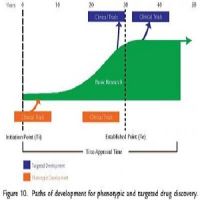According to a state of the art review paper, traditional Chinese medicine may be effective as a complement or alternative to traditional Western medicine for primary and secondary prevention of heart disease. The paper is published in the Journal of the American College of Cardiology.
Despite significant advances in Western medicine for the treatment and prevention of heart disease, it continues to remain the number 1 cause of death worldwide. That is primarily why people are turning towards traditional Chinese medicine as a possible supplement to Western medicine. Clinical data to date however is mainly flawed or of poor quality.
Western scientists are not big fans of Chinese medicine. They believe that these medicines consist of dozens of ingredients with many chemical molecules making it difficult to specifically identify the therapeutic mechanism. They are also apprehensive since most of these drugs do not undergo any rigorous approval process. Trials are mostly conducted in China by traditional Chinese medicine physicians and many of these medications are unavailable in the U.S.
In this review, the researchers looked at studies that have been published over the last ten years on randomised controlled trials of traditional Chinese medicine. The drugs were used in patients with hypertension, dyslipidaemia, diabetes/pre-diabetes, atherosclerotic cardiovascular disease and chronic heart failure. The objective of the review was to study the efficacy and safety of traditional Chinese medicine.
Findings showed that certain Chinese medicines have benefits for the cardiovascular health conditions that were studied. Based on evidence from eight randomised controlled trials on traditional Chinese medicine and hypertension, it was found that Tiankuijiangya, Zhongfujiangya, Qiqilian, Jiangya and Jiangyabao have antihypertensive effects and a good safety profile. It still needs to be determined whether these benefits can be transferred into long-term positive cardiovascular outcomes.
"Of note, one should bear in mind that traditional Chinese medicine medications are usually prescribed as complex formulae, which are often further manipulated by the practitioner on a personalized basis," said Yuxia Zhao, senior author of the review and a physician in the Department of Traditional Chinese Medicine at Shandong University Qilu Hospital in Jinan, Shandong, China. "The pharmacological effects and the underlying mechanisms of some active ingredients of traditional Chinese medications have been elucidated. Thus, some medications might be used as a complementary and alternative approach for primary and secondary prevention of cardiovascular disease."
Source: American College of Cardiology
Image Credit: Pixabay
References:
Hao, Panpan et al. Traditional Chinese Medicine for Cardiovascular Disease. Journal of the American College of Cardiology, 2017; 69 (24): 2952 DOI: 10.1016/j.jacc.2017.04.041
Latest Articles
heart disease, hypertension, primary prevention, secondary prevention, Traditional Chinese Medicine
According to a state of the art review paper, traditional Chinese medicine may be effective as a complement or alternative to traditional Western medicine for primary and secondary prevention of heart disease. The paper is published in the Journal of the



























